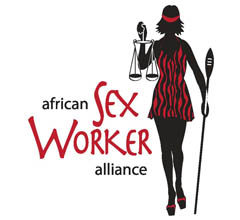
by Matt Wade, New Delhi January 8, 2011
SUMAN is proud of her boob job. It cost about $2500, a small fortune for most Indians, but comes with a ”lifetime guarantee” and the promise of higher earnings. Like many Indian transsexuals, known as hijras, Suman boosts her income with sex work. Breast enhancement operations, now easily available in big city hospitals, are increasingly popular among the naturally flat-chested hijras. Suman’s investment is paying handsome dividends.
On International Day to End Violence Against Sex Workers the PLRI are circulating a media release to launch their new website and stress the need for evidence based policy making to tackle violence and abuse.
The Paulo Longo Research Initiative is a collaboration of researchers, policy analysts and sex workers working within the sex workers rights movement to improve the human rights, health and well being of sex. workers. Led by independent sex workers, and named after sex worker activist Paulo Henrique Longo, PLRI is committed to developing, consolidating and disseminating
This short fact sheet outlines the key issues and HIV risks associated with sex work in many parts of the world including: high rates of STIs and HIV; poverty; low educational level; limited access to healthcare services and prevention commodities; gender inequalities; social stigma and low social status; drug or substance use and; a lack of protective legislation and policies. It suggests that the following types of HIV programmes have been successful in meeting sex workers’ needs:
Background: To monitor the trajectory of the HIV epidemic among higher risk groups the National AIDS Programme (NAP) has a two prong surveillance system which consists of HIV sentinel serosurveillance and behavioural surveillance surveys (BSS). Both are critical components for assessing and evaluating the overall impact of the national response to HIV and AIDS. The previous round of BSS, in 2003, were conducted among the general population.
An article in the J Acquir Immune Defic Syndr Volume 53, Supplement 1, February 1, 2010.
The aim of the research presented in this report was to explore the social contexts, life experiences, vulnerabilities and sexual risks experienced by men who sell sex in Southern and Eastern Africa, with a focus on five countries; Kenya, Namibia, South Africa, Uganda and Zimbabwe. It sought to better understand differing and similar socio-cultural scenarios and personal life stories of male sex workers in these countries and to improve the representation of male sex workers in relevant regional organisations, particularly within the African Sex Workers Alliance (ASWA).
We can then see what demands a customer places on workers, understand where ‘his’ expectations come from and how ‘his’ judgements of good and bad service are produced in order to make
 The African Sex Worker Alliance (ASWA), Bar Hostess, Sisonke and SWEAT in conjunction with the Ford Foundation, OXFAM NOVIB, UNDP and OXFAM GB are to launch research on human rights violations against sex workers.
The African Sex Worker Alliance (ASWA), Bar Hostess, Sisonke and SWEAT in conjunction with the Ford Foundation, OXFAM NOVIB, UNDP and OXFAM GB are to launch research on human rights violations against sex workers.

